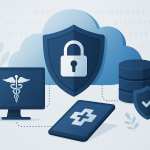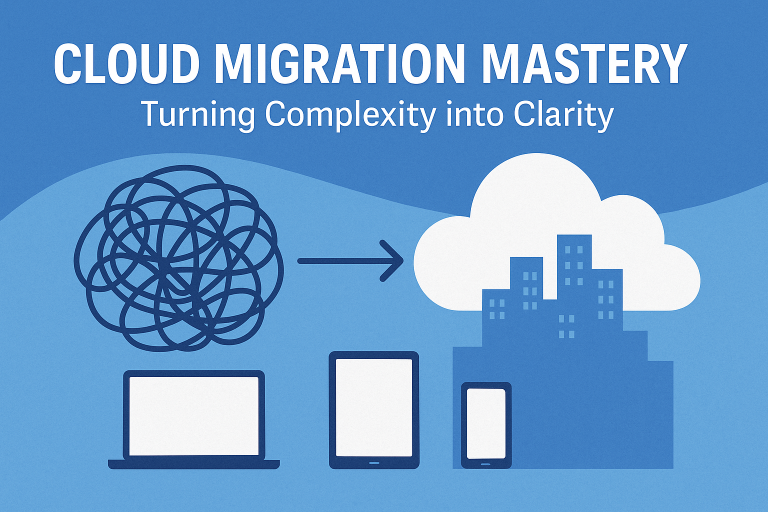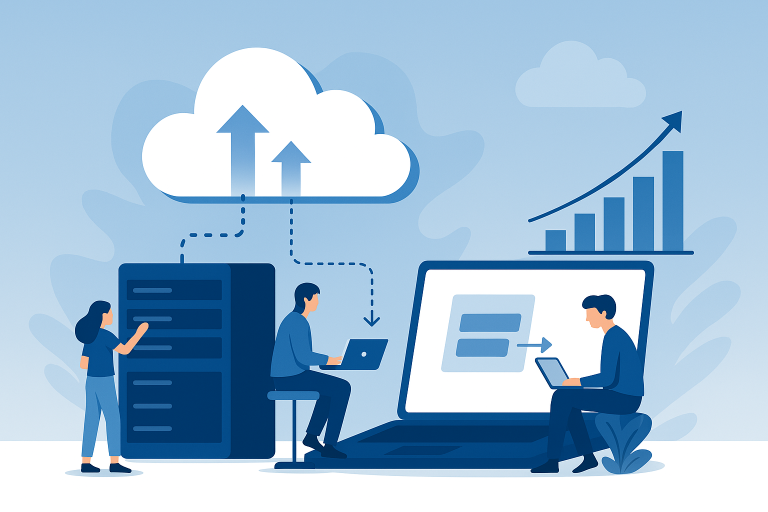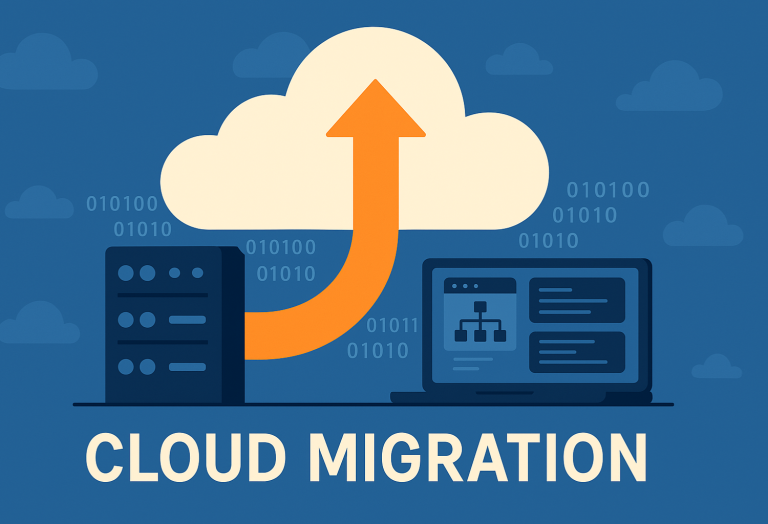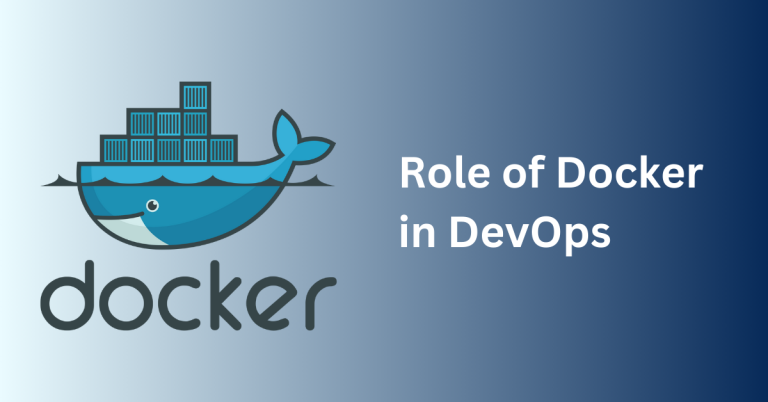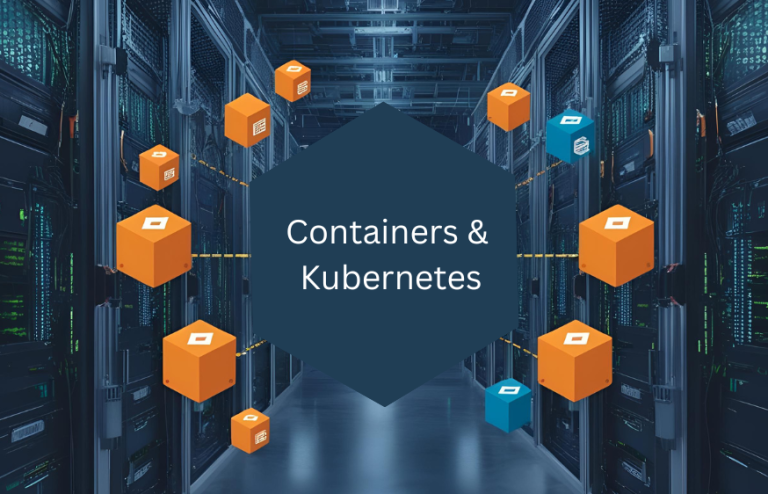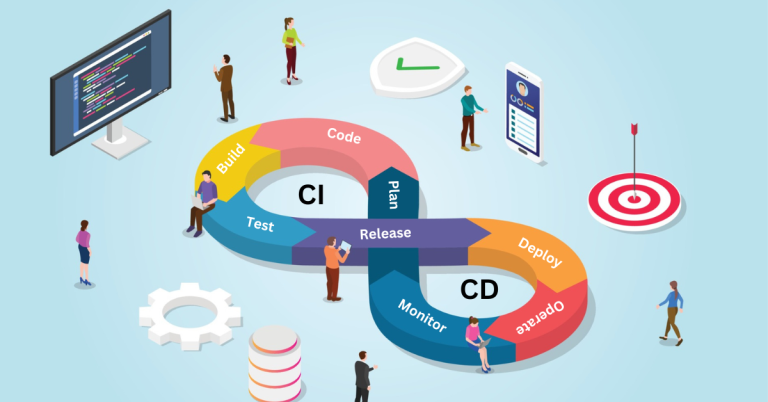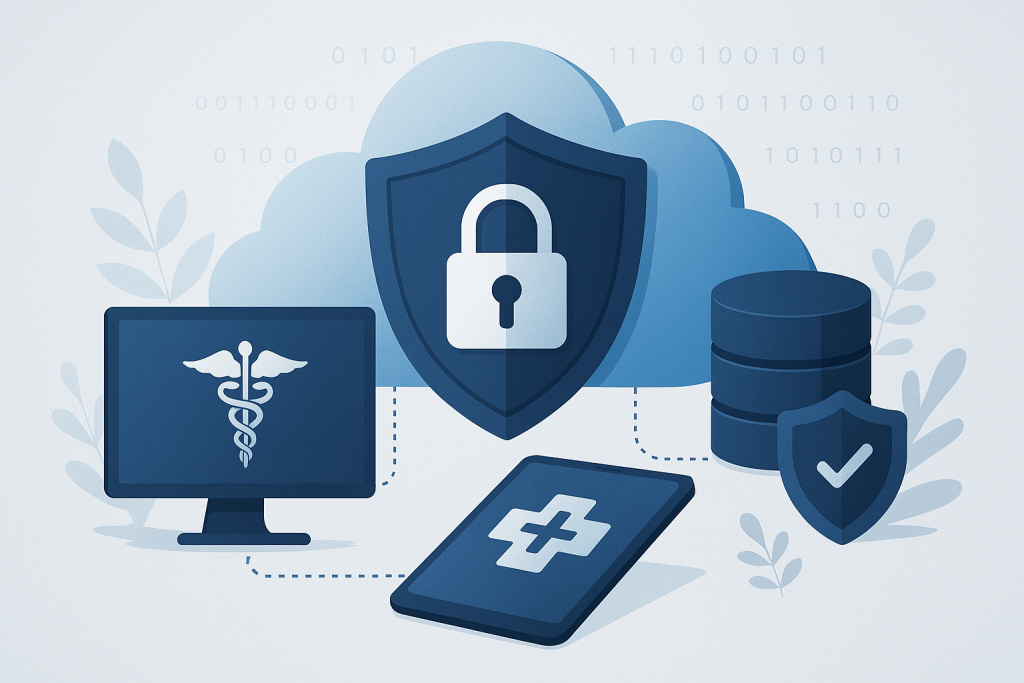
As the healthcare sector continues to embrace digital transformation, safeguarding sensitive information is more important than ever. Cloud computing in healthcare offers significant opportunities to enhance healthcare data security, optimize operations, and ensure compliance. However, effectively utilizing cloud solutions for healthcare data protection involves more than merely moving to the cloud. This requires a strategic approach, robust security protocols, and awareness of healthcare’s unique data protection challenges.
Imperative of Data Security in Healthcare
“Healthcare data is at the core of patient care. From personal health records to billing and research data, keeping this information secure is critical. Consequently, its sensitive nature makes it a frequent target for cyberattacks, which can lead to severe financial, legal, and reputational consequences.
Regulatory Compliance: Healthcare organizations must also meet strict regulations like HIPAA, HITECH, and GDPR while maintaining data security. Balancing these requirements can be challenging for IT leaders.
For more information on HIPAA, visit the official HIPAA Overview page.
Cloud computing has become a game-changer. With advanced security features and scalability, the cloud helps healthcare organizations manage and protect their data more efficiently than ever before.
Why Cloud Solutions are ideal for Healthcare Data Security
Here’s how cloud solutions improve data security in healthcare:
1. End-to-End Data Encryption
Cloud providers excel at implementing encryption methods that safeguard data both at rest and in transit, as well as during processing. This encryption guarantees that even if a data breach occurs, the information remains unreadable and protected.
2. Advanced Identity and Access Management (IAM)
Robust identity and access management (IAM) ensures that only authorized personnel can access sensitive healthcare information. Cloud-based IAM solutions enable healthcare organizations to enforce stringent access controls, manage user identities across various platforms, and utilize multi-factor authentication (MFA) to enhance security.
3. Continuous Monitoring and Threat Detection
Cloud environments are designed with advanced monitoring tools to ensure real-time identification of vulnerabilities, suspicious activities, and potential threats. By leveraging AI-driven scalability for cloud solutions, healthcare organizations can not only detect unusual patterns in user behavior or network activity but also scale their security measures dynamically. These intelligent systems provide immediate alerts and enable automated responses, ensuring a secure and adaptive cloud environment that grows with organizational needs.
How Managed Cloud Services Strengthen Healthcare Data Security
Managed cloud services are vital for secure, compliant healthcare environments, offering comprehensive solutions beyond simple data migration.
Scalability and Flexibility: The volume of healthcare data is increasing rapidly. Managed cloud services enable organizations to expand their cloud infrastructure without sacrificing security or performance. Whether facing a spike in patient data from telemedicine or undertaking large research initiatives, cloud services ensure you have the necessary resources to meet growing data needs.
Real-Time Data Protection: Cloud monitoring and management services keep an eye on user activity, system performance, and network traffic as it happens. This allows for the immediate detection of any unusual activities, such as unauthorized access attempts or strange data transfer patterns. Moreover, these services work alongside advanced threat detection systems that can automatically respond to potential breaches by blocking access or notifying security personnel.
24/7 Security Monitoring and Incident Response: One of the main advantages of managed cloud services is the continuous monitoring and swift incident response they offer. With healthcare data constantly at risk from cyberattacks, having dedicated security professionals available to detect and address threats at any time is essential for safeguarding patient information.
Proactive Security and Compliance Management: Cloud providers specialize in cloud security and compliance. They establish strong security measures, perform regular vulnerability assessments, and ensure that the infrastructure complies with regulatory standards. For example, features like secure multi-tenancy and data isolation help healthcare organizations fulfill the privacy requirements of HIPAA, GDPR, and other regulations.
Data Compliance and Reporting: Cloud management platforms also facilitate automated compliance reporting, assisting healthcare organizations in meeting regulatory standards. These tools create audit logs and reports that detail data access, changes, and security measures, which are crucial for maintaining compliance during inspections or audits.
Challenges in Healthcare Cloud Adoption
With healthcare organizations shifting towards cloud computing, various issues must be overcome to successfully transition towards the same:
1. Data Security and Privacy Issues: The biggest concern with the adoption of the cloud is to ensure the safety of sensitive patient data. Proper encryption, safe access controls, and continuous monitoring are needed in order to protect patient information against any breach and cyberattacks.
2. Regulations Compliance: Healthcare organizations have to comply with strict regulations like HIPAA. It is challenging to ensure that cloud solutions work well under the same compliance standards across regions and jurisdictions to avoid legal and financial implications.
3. Data Interoperability: Healthcare systems often rely on a combination of legacy technologies and modern platforms. Integrating cloud-based services with existing systems like Electronic Health Records (EHR) can be challenging, potentially leading to fragmented data and slow access to patient information.
4. Latency and Downtime: Cloud-based services are flexible, but they suffer from latency and downtime, which disrupts access to critical patient information in time-sensitive situations.
Addressing these issues is the only way to unlock the complete potential of cloud computing in healthcare.
Best Practices for Enhancing Healthcare Data Security with Cloud Solutions
To ensure the effectiveness of cloud solutions while protecting healthcare data, organizations should adhere to the following best practices:
Implement Zero Trust Architecture: This security model operates under the principle that no one, including users within the network, is automatically trusted. Continuous verification of identities, device health, and access is essential to mitigate insider threats and prevent unauthorized access.
Regular updating of security protocols: As the cloud environment evolves, so do the threats. Health care organizations need to regularly update their security protocols to keep pace with the emerging risks.
Perform Vulnerability Assessments: Conducting periodic vulnerability scans and penetration testing allows organizations to detect and remediate weaknesses before they are exploited by cybercriminals.
Invest in disaster recovery and business continuity plans: A solid disaster recovery plan is the lifeline of a healthcare organization in its quest to rapidly recover from lost data or system failure so that patient information remains secure and business continues without disruption.
Conclusion:
As healthcare data grows in volume and complexity, the cloud presents a secure and scalable solution to protect sensitive patient information. With the help of managed cloud services, healthcare organizations can boost data security, simplify compliance, and prepare their cloud environments for future needs.
However, adopting cloud solutions in healthcare isn’t a one-size-fits-all approach. It requires careful planning, with strong security measures, ongoing monitoring, and regular risk assessments. By adhering to best practices and partnering with reliable cloud providers, healthcare organizations can prioritize patient care.
In this rapidly changing environment, the cloud is more than just a tool for improving operations. It’s an essential resource for strengthening healthcare data security and supporting long-term success in the healthcare sector.
.
